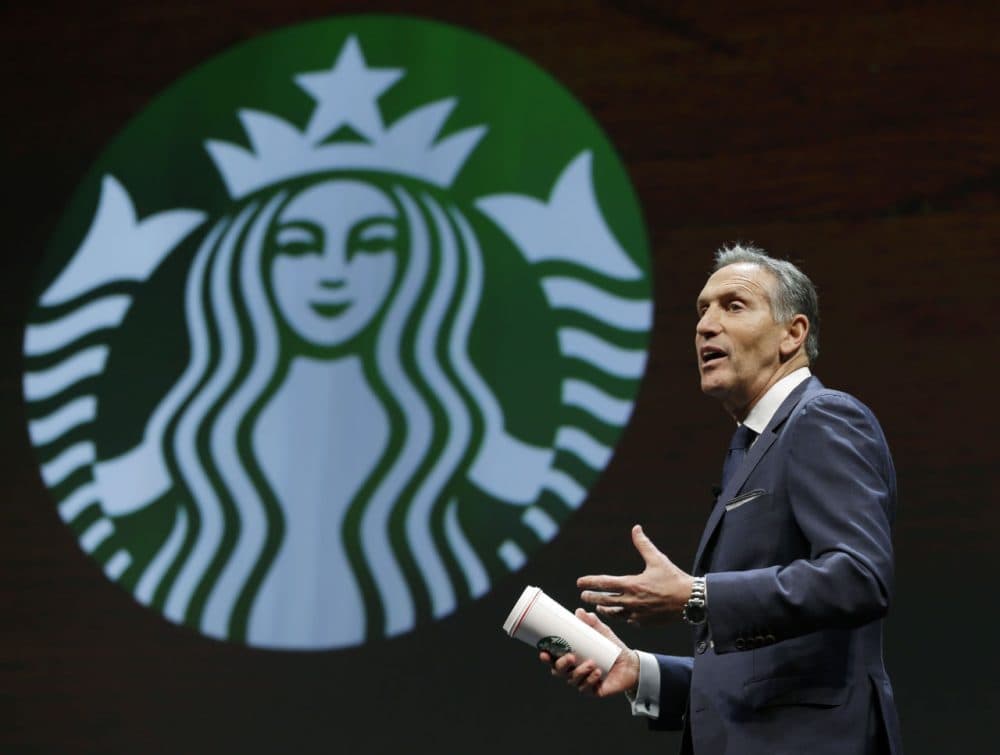Advertisement
Commentary: 4 People Who Could Add Strength As Clinton's VP (They're Not The Usual Suspects)

As it becomes more likely that Hillary Clinton will be the Democratic presidential nominee, talk inevitably has turned to a potential vice presidential candidate. The usual suspects include U.S. Sens. Cory Booker of New Jersey, Sherrod Brown of Ohio, Tim Kaine of Virginia, Amy Klobuchar from Minnesota and, of course, our own Sen. Elizabeth Warren. There's also housing secretary, Julián Castro, who admits he doesn’t speak Spanish. (Isn’t that kind of the idea?)
All of these are perfectly fine public officials, but why not fish in other waters to find an individual whose credentials would help her deal with Donald Trump?
Clinton is steeped in national and international politics; what she needs is a choice that demonstrates, especially to white men, that she will place a priority on jobs, which is what voters think they’ll get from Trump and, to some extent, Vermont Sen. Bernie Sanders.
Assuming she doesn’t need a woman, let’s consider four men:
1. Once called The Lord of Latte, Howard Schultz, CEO of Starbucks, was pressed by friends to run in this campaign for the Democratic nomination for president. An outspoken 62-year-old who lives and works in Seattle, he grew up in the housing projects in Brooklyn (yes, another Brooklynite). He worked his way up the company, which originally sold just coffee beans. After visiting European coffee bars, he raised the money to buy the company and opened Starbucks, the first and wildly successful American coffee bar. He has strong opinions and has written about what he calls the “fraying American dream.” In 2013, he made headlines and won wide applause for issuing a statement in support of legalizing gay marriage. When a shareholder threatened a protest, Schultz shot back, “Not every decision is an economic decision.”
2. Chosen by Michigan Gov. Rick Snyder to save Detroit from financial collapse, Kevyn Orr left a cushy job as one of “a tiny handful of prominent African-American corporate turnaround lawyers in the country.” The 57-year-old had been best known for helping guide Chrysler through its successful 2009 bankruptcy. In 2013, he reviewed Detroit’s terrible finances and declared, “This is the Olympics of restructuring.” He decided the best course was for the city to declare bankruptcy in order to free it from its crushing $18 billion debt. He was also charged with restoring basic services — police, fire, streetlights — that had eroded to dangerous levels. The judge overseeing his work approved Orr’s plan, allowing the city to follow a path that Orr described as “moving toward financial stability and success as a viable and attractive place to live, work and invest.”
3. Michael Brown, 55, is co-founder and CEO of City Year in Boston. He and his Harvard classmate and co-architect of City Year, Alan Khazei, are close to Bill Clinton. As editor of the Harvard Law Review, Brown served as a legislative assistant to then-U.S. Rep. Leon Panetta of California and clerk for then-federal Judge Stephen Breyer. The 27-year-old national service organization has an operating budget of $100 million and is active in 24 cities. City Year was the model for AmeriCorps, the nationwide public service program supported by the U.S. government, foundations, corporations and other donors. With 2,700 volunteers, City Year is now targeting the nation’s high school dropout crisis, working to help turn around low-performing schools. Corps members serve as full-time tutors, mentors and role models for troubled youth. Brown was awarded the Reebok Human Rights Award and named one of America’s Best Leaders by U.S. News & World Report and an Executive of the Year and a member of The Power and Influence Top 50 by The NonProfit Times.
4. Kevin A. Plank, 43, became a billionaire as founder and CEO of Under Armour, the onetime underdog competitor to Nike in sports apparel. Currently, his most famous shoe customer is Steph Curry, professional basketball’s most valuable and arguably most popular player. Plank’s father was a well-known Maryland developer; his mother ran the legislative office of the State Department under President Ronald Reagan. Considered a Republican, he contributed $2,000 to Rudy Giuliani’s presidential campaign, but federal records show he has given to candidates of both parties. At the University of Maryland, he launched a Valentine’s roses business which he sold to start Under Armour. Based in Baltimore, the company grew out of his personal unhappiness with cotton T-shirts, which he felt did not deal effectively with athletes’ perspiration. Plank called himself “the sweatiest guy” on his high school football team. Using synthetic fabrics, he launched his new line with a $25,000 advertisement in ESPN The Magazine in 1999; it led to $1 million in direct sales and was followed up with TV advertising. By 2010, the company's revenues passed $1 billion. Two years later he was recognized by Forbes as the No. 3 on its list of America's 20 Most Powerful CEOs aged 40 and under. In April 2015, his net worth was estimated at $3.5 billion.
Dan Payne is a Democratic analyst and a regular contributor to WBUR Politicker.
